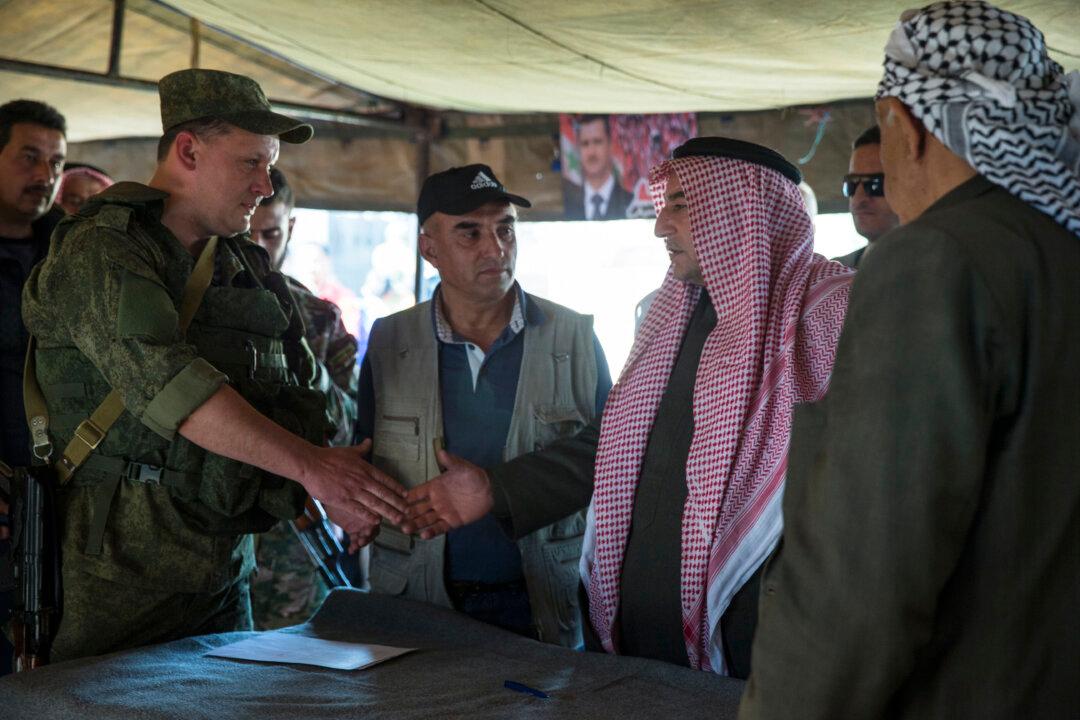BEIRUT— Syrians in rebel-held areas took advantage Friday of a week-long cease-fire to rally against President Bashar Assad, demanding his resignation, while a top opposition figure said his side believes it is “not suitable” for peace talks to resume in Geneva next week.
Meanwhile, France’s president expressed optimism, saying discussions about a political transition in Syria will “accelerate” with the truce holding across the war-wracked country.
The rallies in rebel-held areas were small — hundreds protested in the eastern sector of the city of Aleppo, in the western Waer neighborhood of Homs and in Idlib province — but they reflected a sense of relief amid the cease-fire that has mostly held since it went into effect across the country last Saturday.
The protesters called on Assad’s government to release detainees from prisons and lift several sieges on opposition areas — issues that have been key demands of the opposition ahead of peace talks planned to resume in Geneva next Wednesday.
In a blow to those plans, Riad Hijab, who heads the opposition High Negotiations Committee, said that circumstances were not suitable to resume the talks, adding that the United States has “made many concessions” to Russia, one of the main backers of Assad.
Despite the truce, Syrian military operations are still ongoing, detainees have not been released by Damascus and little aid is entering rebel-held besieged areas, Hijab said in Paris.
He spoke shortly after French President Francois Hollande, after speaking with the leaders of Russia, Germany, Britain and Italy, said from Paris that there was agreement to take advantage of the truce to coordinate humanitarian aid and open a process of political transition in Syria — though he cautioned about advancing too quickly.






